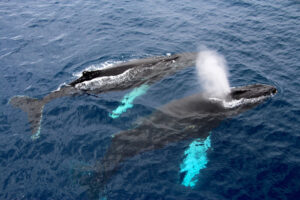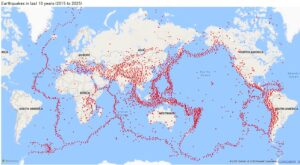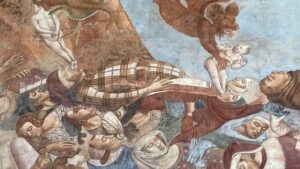Western culture tends to present people as innately selfish. This widely accepted view even has a name: It’s known as the Veneer Theory, and it states that human kindness and morality are just a thin veneer over an otherwise selfish and nasty human nature.
Dutch historian Rutger Bregman takes a more optimistic view of humanity: He says that our species dominance has depended on human kindness and communication. He explores this idea in his latest book, Humankind: A Hopeful History.
One of the starting points for his book was the true story of a group of boys who were stranded on a desert island for over a year. So far, it sounds like Lord of the Flies, but unlike William Golding’s literary classic, this group of real-life boys did not descend into savagery. Bregman tracked down their rescuer, Peter Warner, and one of the members of the shipwrecked group, Mano Totau. Their story is nothing short of amazing.

Rutger Bregman. Photo: Hollandse Hoogte
In June 1965, six students aged 13 to 16 from a strict Catholic boarding school in Tonga, in the South Pacific, decided that they were so bored, they would run away. Their vague idea was to escape to an exciting new life in Fiji or New Zealand. As none of them owned a boat, they “borrowed” one from a local fisherman they disliked and set off.
They didn’t exactly think their adventure through. No one thought to take a compass or map, they packed very little food and had no real plan. They also made a terrible mistake –- they all fell asleep. When they woke, they were in the middle of a storm. The wind shredded their sail, the rudder broke and they drifted for eight days. They survived by collecting rain water in hollowed-out coconut shells. They shared it equally; each allowed a mouthful in the morning, and another in the evening.
On day eight of drifting aimlessly, they spotted an island. ‘Ata was more of a big rock sticking out of the ocean than a tropical paradise, but it was their only option. Today, it is considered uninhabitable, but Warner noted that by the time he had rescued the boys, they had “set up a small commune with a food garden, hollowed out tree trunks to store rain water, [and had] a gymnasium, badminton courts, a chicken pen and a permanent fire”. So far, their experience could not be more different from Lord of the Flies.

A still from the film adaption of William Golding’s classic, Lord of the Flies. Photo: Ronald Grant
The six boys agreed to work in teams of two. They started and ended each day with song and prayer, imposed time-outs when quarrels arose and made a guitar out of driftwood and parts of their boat to lift their spirits. They initially survived on fish, coconuts, tame birds and seabird eggs. But when they reached the top of the island, they discovered a volcanic crater where inhabitants had lived a century before. Within it, chickens had been reproducing for last 100 years.
During their year on the island, one boy broke his leg in a fall. They set it using sticks and leaves, and when they were rescued, a physician was amazed to see it has healed perfectly.
Peter Warner was a well-off kid who worked for his father’s company, but he yearned for a life at sea and kept a fishing fleet in Tasmania, where he went as often as he could. It was on one of these trips in winter 1966 that he noticed through his binoculars burned patches on the cliffs of ‘Ata.
For an uninhabited island, this was puzzling. He kept looking and to his amazement, he saw a naked boy, hair down to his shoulders, leaping from the cliffs into the water. More boys appeared and followed him into the sea, screaming and frantically swimming for his boat. When the first boy reached him, he cried out, “My name is Stephen, there are six of us and we think we’ve been here for 15 months.”

Mano Totau. Photo: David Kelly/The Guardian
When Warner took them back home, almost the entire population of their island turned up to greet them. The boys had been gone for over a year and were presumed dead. Their funerals had been held. Everyone was overwhelmed with emotion. When he returned to Sydney, Warner resigned from his father’s company and bought a new ship –- he had found his new crew on ‘Ata. He offered them all the chance to see the world beyond Tonga — what they had been aiming for when they stole the fishing boat a few years earlier. Despite their experience at sea, they all accepted.
While this is a story of loyalty, survival and friendship, showing the best side of human nature, one of the survivors, Mano Totau, now 73, admits that his memories of the island are far more harrowing. The six teenagers were stranded; they were not happy, they were terrified. He cautions everyone against thinking their experience was an enjoyable one.
A live streamed Q&A with Bregman will take place on May 19, at 19:00 UK time.






